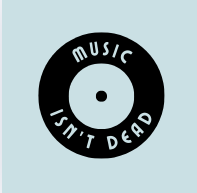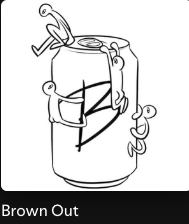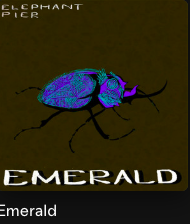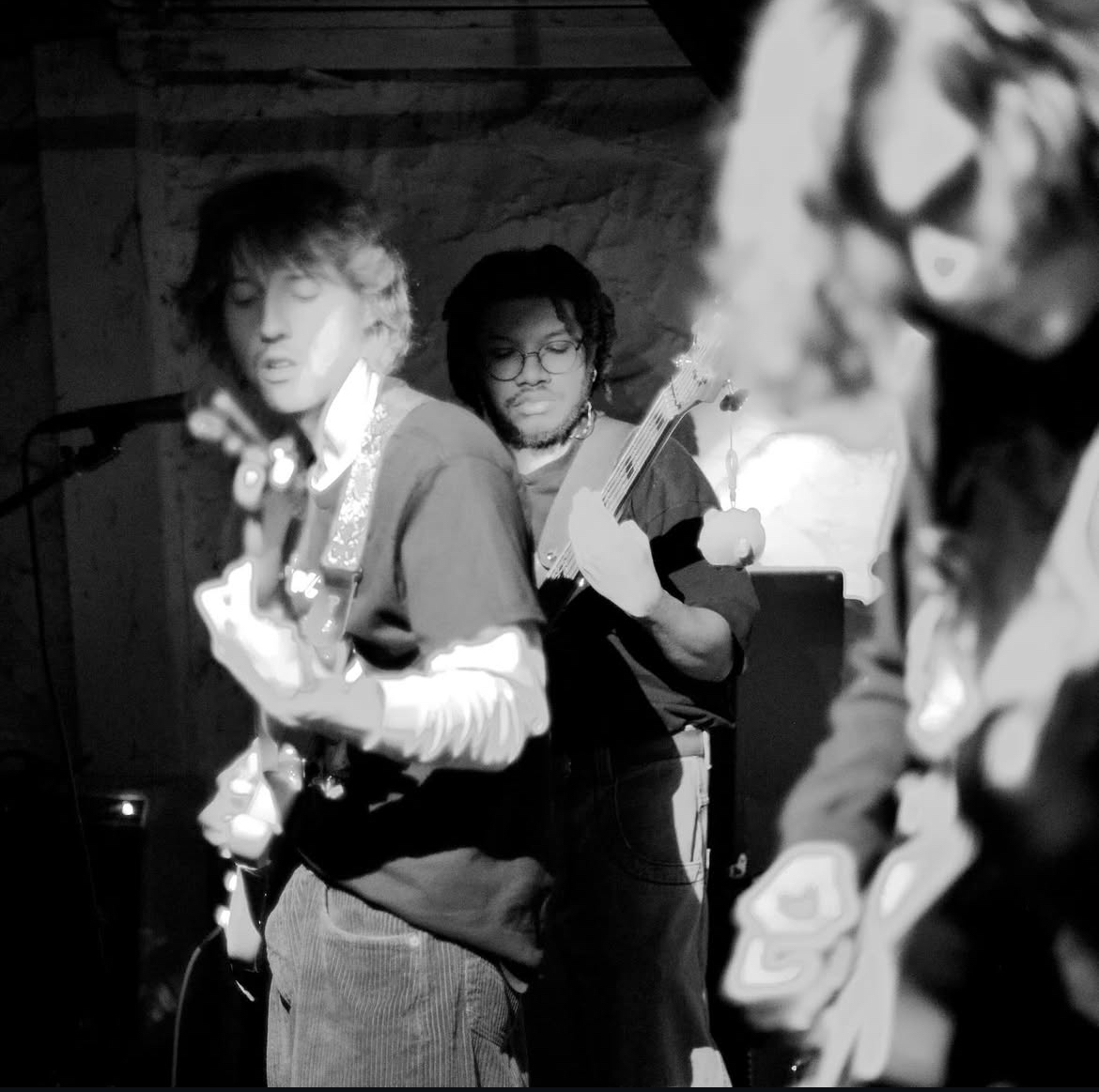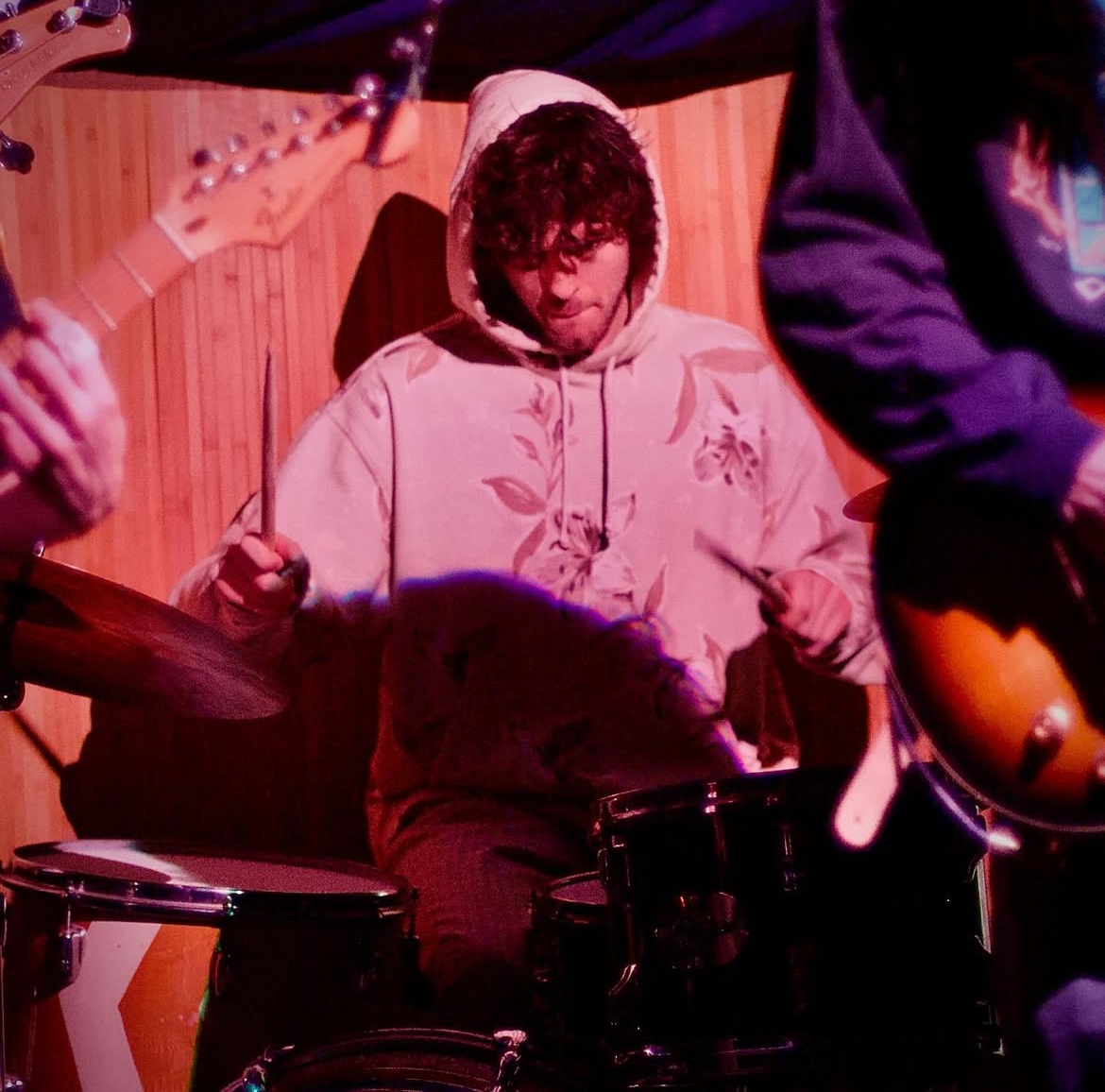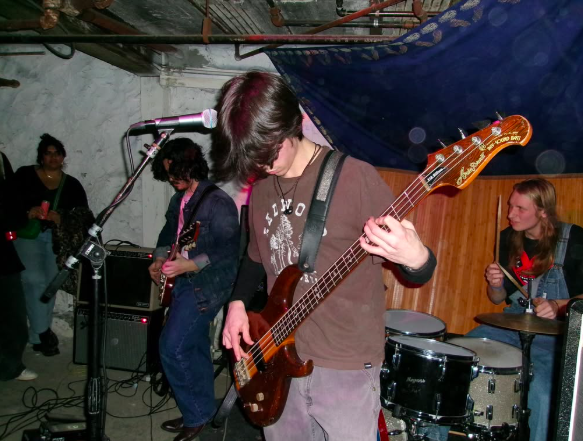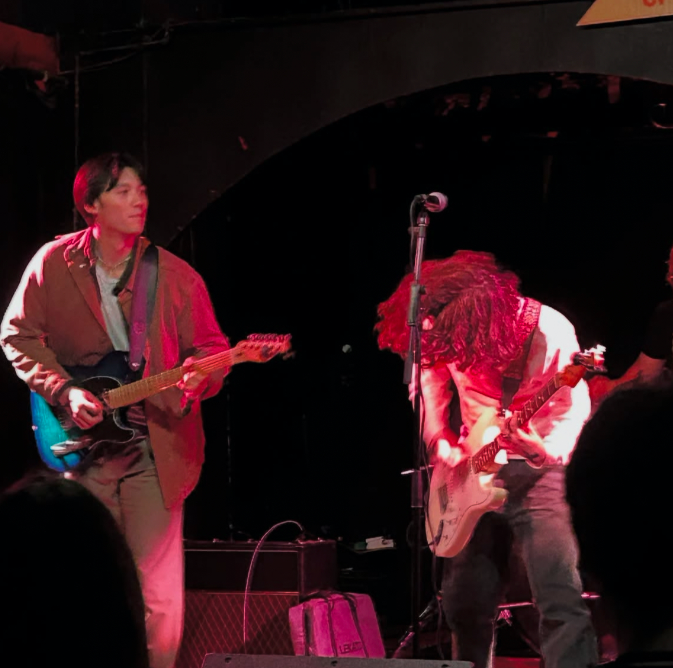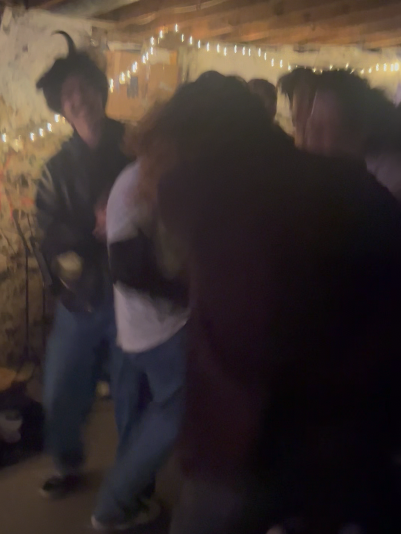Music Isn't dead
An Invesigation into Boston's Underground Music Scene
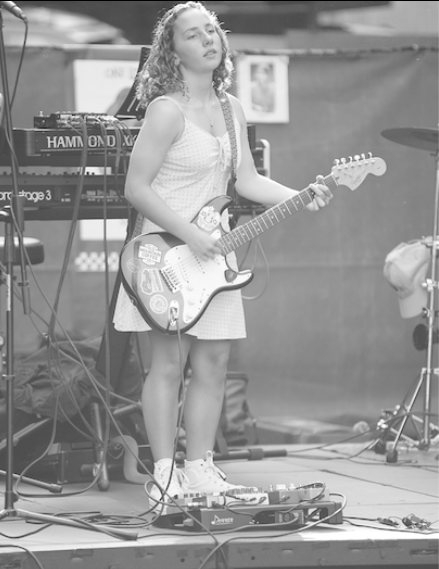
Welcome to my Site!
My name is Grace Biondo and I am a musician and student journalist at Northeastern University
On any weekend night, if you turned off Western Ave., you would find a group of college students wandering through Allston, Boston, their phone their compass, searching for the social oasis of passion, expression, and connection that a house show provides. Beginning with allusive exchanges on Instagram DMs, sifting through the identical townhouses to find the address given, and ending with signs leading you to the back entrance, the actual show can feel like a treasure hunt, with the prize being live music with great friends. Lead singers mosh with the crowd during instrumental breaks, fans sing along to their favorites, and the crowd chants “One more song! One more song! One more Song!” begging the band for an encore. Kate, a member of the music business club who has been to five shows, keeps coming back because it is “so much fun to see the same faces every weekend and get to know them through the music.”
Live shows at Allston in Boston, Massachusetts
Harvard research shows that 61% of Americans aged 18-25 self-reported being lonely frequently compared to 24% of Americans aged 55-65. In a college town such as Boston, there arises the question: how does the youth combat social isolation? Many students turn to live music. “It’s about creating a space of open-mindedness,” says Riley Seene, the lead guitarist of the band Juicebox. This group of four fourth-year Berklee students plays indie/alternative rock inspired by established artists such as Julie, Her New Knife, Greg Saunier, Deer Hoof, Mac DeMarco, and Pine Grove. Alongside other local bands, these musicians offer an alternative to mainstream Boston nightlife for free or $5 to $15 at the door. Members include TJ Cocinas (bass), Malcolm Longaker (drums), Sean Nelson (lead vocals and rhythm guitar), and Riley Senne (lead guitar). Juicebox will release its first album, “Songs that Don’t Exist”, this spring. It is therapeutic not just for the fans but the musicians themselves, Nelson explains, “I think the largely meaningful part of it is finding a place to express and work through the emotions inside of yourself and forward that to whoever’s willing to listen.” These performances fill an emotional and social need in the youth community, impacting not just the fans but the performers who appreciate the opportunity to express themselves. At each show, it is clear that the bands formed a tight-knit group with each in the front row cheering on the other band that plays.
Some of these college musicians have to make sacrifices. “I’ve had the same guitar for almost my entire life. I try to buy as little gear as possible, and then I save money by not eating,” Nelson joked. David Herlihy, professor in the Undergraduate Music Industry Program at Northeastern Univerisity and advisor of Greenline Records warns, “It’s hard to get paid with your guitar…If your goal is to make money you should do something else. If you’re going to be miserable, might as well be rich and miserable,” but emphasizes the importance of music, “There is a big change in the live music business model but the basic, magnetic, existential traction to music is not going anywhere…it it is essential for your psyche. It is tribal, it brings us together…Music is a human need.”
Breakfast Beers, a Northeastern band that frequently appears on the night’s roster, is a fan favorite. They formed in June of 2024 and won Northeastern’s Afterhours Battle of the Bands in September of this year. When asked whether they will compete at the next Battle of the Bands, bandmates jest that they will sit out to let the others have a chance. Johan Blackwell (singer and rhythm guitar), Rachel Lightman (Bass), Ryan Schwartz (lead guitar), Hayden Budofsky (original drummer), John Eckert (substitute drummer), and Auden Oaks (substitute drummer) are a ‘90s alt-rock-focused group. At the interview, Blackwell sported an Alice in Chains shirt and cited this musician as their influence alongside Sonic Youth, Jimi Hendrix, Black Sabbath, Smashing Pumpkins, and Led Zeppelin. Breakfast Beers is a self-described shoegaze band. This term describes a subgenre of indie and alternative rock characterized by its ethereal, dreamlike sound, heavily reliant on the variety of guitar distortion that changes with the click of the foot pedal. “Shoegaze” refers to how the bass and guitar musicians switch in and out of different tones so intentionally and frequently that it looks like they’re gazing at their shoes. Some fans at the show know the original songs so well that they will point at the pedals and cheer on the musicians at the transitions where the pedals are used. Like their influences, the lyrical content of their music describes many aspects of the human condition, making the experience of performing and watching the songs in a basement with fifty other adolescents profound. Blackwell says, “The lyrics I write are very introspective…It’s very personal, honest, raw, emotional, and deep.”
